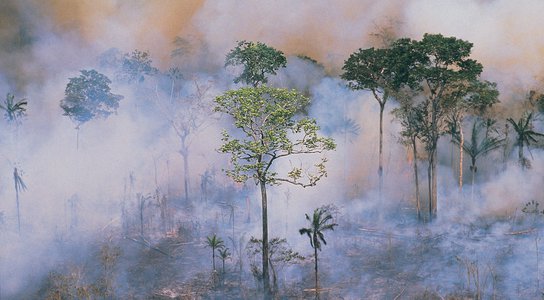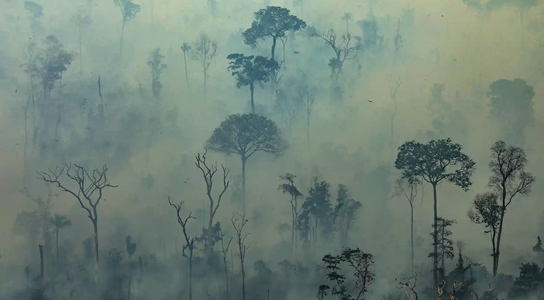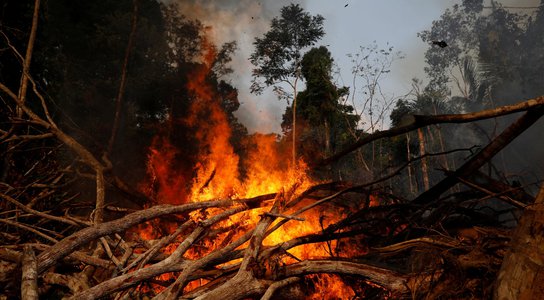As we dive into 2020, watching Australia’s wildfires spread at alarming rates, it’s key to reflect on some of the climate moments of 2019, and how we can build on them with new energy this year.
It’s with that spirit that we’re reflecting on the unexpected – and widely welcomed – move by one of the world’s biggest investment banks in December. Goldman Sachs has started to distance itself from fossil fuels, rejecting any future financing of oil drilling or exploration in the Arctic.
The bank’s open acknowledgement of the climate crisis, in its own words the “most significant environmental challenges of the 21st century,” sends a clear message to the finance sector: we can take action now – and we should. Their announcement was quickly followed by Standard Chartered pulling out of three coal plants in Asia, and announcing a phase-out of its lending to coal companies. This makes Standard Chartered the first UK bank to move on fossil fuels in the run-up to the UN Climate Conference in Glasgow. More will inevitably follow.
Not only is this good news for the Arctic – a regular media menagerie of melting ice, stranded polar bears and alarming warmth – but it’s also good news for business. Industry experts and environmentalists alike are pointing to the increasing benefits of investing in a truly sustainable way, and this move by a major financial player will only strengthen that argument.
While credit is due for Goldman Sachs’ policy-change – and the organisations that pushed them toward it must equally be applauded – it’s important to note that this is one ripple in a churning ocean of environmental worry.
Though the global climate undeniably benefits from a move away from investments in coal, there is a risk that these funds will now divert to other industries that could also have a bad impact on the planet. Our own analysis published in September on the financing of companies linked to deforestation shows that many are not exercising caution when it comes to these risks in their investments.
Forests critical for curbing climate breakdown are still destroyed at rapidly escalating rates. Agribusiness – particularly cattle – forcing communities and forests alike off land they’ve both occupied for generations. And while banks and investors continue to rely on voluntary measures to curb climate change, the problem will only continue to grow.
The chair of the World Economic Forum’s Tropical Forest Alliance last year concluded “that, on their own, voluntary commitments by companies don’t work.” In short – the evidence is clear. Labels, voluntary agreements and opt-in standards aren’t doing enough to protect the planet. We need regulation on our financial sector to stop it pumping money into destructive company practices, and that must be led by government.
More specifically, we need regulations making it mandatory for investors to undertake due diligence on the deforestation risk, environmental and human rights impacts of companies they invest in. Such regulation strips them of the opportunity to feign ignorance over their investee’s activities, and introduces an element of responsibility for those activities that we just aren’t seeing yet.
Nowhere is the importance of this kind of regulation clearer than with the Amazon rainforest, where the Brazilian government are still failing to curb, and even encouraging, rampant deforestation. An astonishing 80% of deforestation there is attributable to the beef sector alone, with rainforest torn down to try to profit from rearing cattle in its place.
In an open letter released towards the end of 2019, Global Witness, alongside nearly 47 other organisations, highlighted the known risks for beef traders choosing to source from the Amazon.
It warned investors of the ongoing deforestation risks of beef traders JBS and Marfrig, following reports that the Brazilian Development Bank (BNDES) may sell shares it holds in both companies in December or early 2020. As two of the world’s largest beef traders operating in Brazil, they’ve been accused multiple times of links to deforestation. They have denied deforestation in their supply chain and point to controls and systems they have implemented. But risks are high in the climate-critical Amazon forest which continues to be destroyed at an alarming rate.
The world now faces a real risk that accelerating destruction of the Amazon will reach a tipping point of no return – where the forest is unable to sustain itself and the massive carbon sink so critically needed to cool the planet disappears. This crisis takes place against a backdrop of escalating human rights abuses in the country, particularly targeting those communities defending the forest.
Amongst the banks with shares in Amazon beef traders – including both JBS and Marfrig – is none other than Goldman Sachs, alongside many other investors and banks claiming green credentials. Banks and investors don’t have to look far to find reports about the risks of deforestation associated with this sector.
The question is – when will they start to care? And how long will governments wait before they step up to the plate and remove the ambiguity of what we expect investors to do? By introducing new regulation, our governments can pull investors and banks into line – ensuring that investment into companies razing our precious rainforests is a definite no-go.


